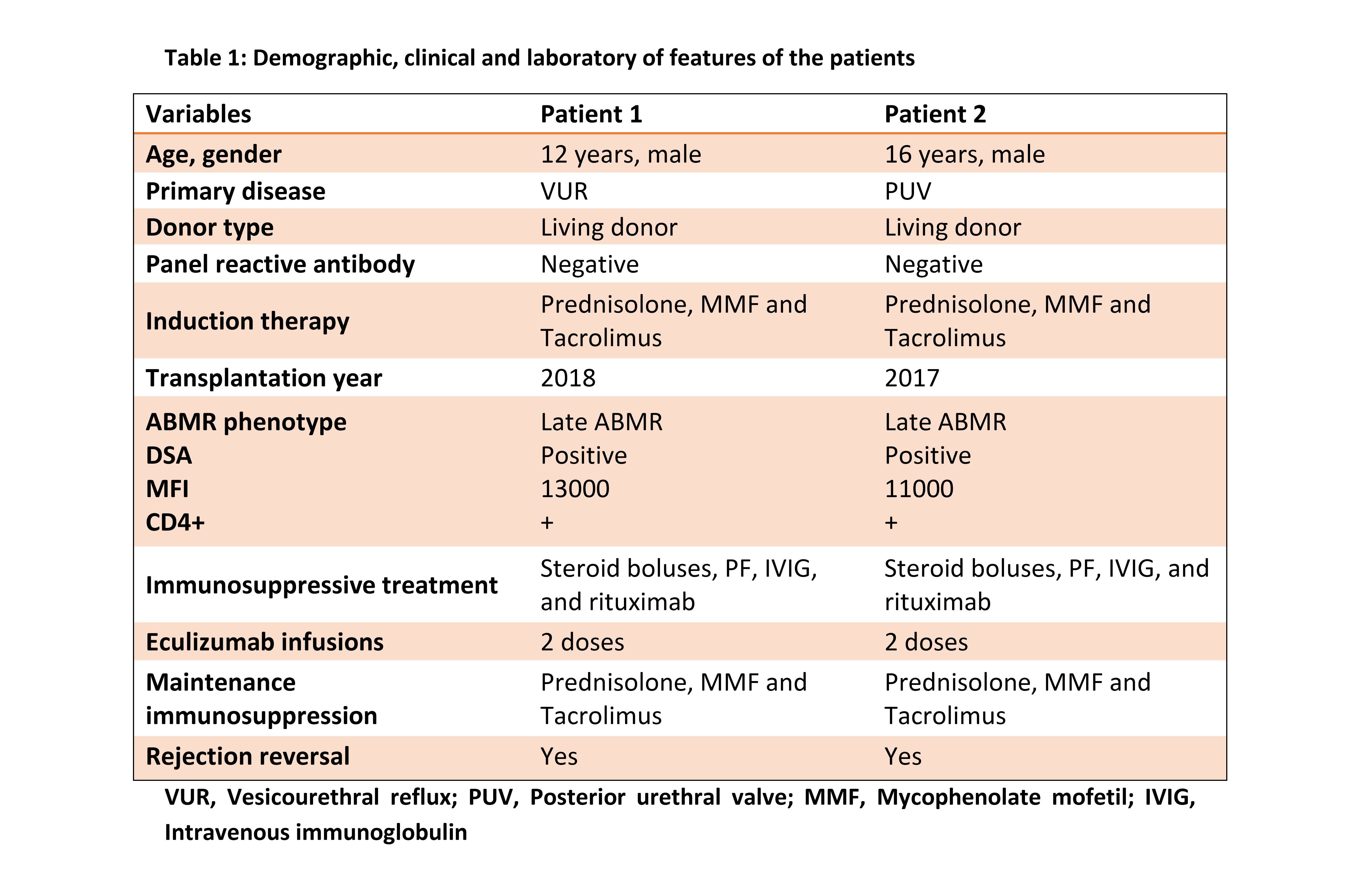
Meraj received his MD (equivalent to MBBS) degree from the Yildirim Beyazit University (2018), and currently specializing in Pediatrics at Baskent University Hospital, Ankara, Turkey. His main clinical interest is in peditric inflammatory diseases, innovative approaches to child health and personalized medicine.
His other research interests include Python in healthcare, medical image processing and AI applications in child health.
Eculizumab therapy for late antibody-mediated rejection in pediatric kidney transplant patients
Meraj Alam Siddiqui1, Esra Baskin1, Feza Yarbug Karakayali2, Atilla Gemici1, Kaan Gulleroglu1, Aysun Caltik Yilmaz1, Gokhan Moray2, Mehmet Haberal2.
1Department of Pediatric Nephrology, Baskent University, Ankara, Turkey; 2Department of General Surgery, Division of Transplantation, Baskent University, Ankara, Turkey
Background: Late antibody-mediated rejection (ABMR) triggered by donor-specific antibodies (DSA) is a major clinical challenge and a leading cause of kidney allograft failure. Effective treatment options for late ABMRs are limited in renal transplant recipients. Eculizumab targets complement protein C5, preventing its conversion to C5a and C5b, thereby inhibiting the formation of the membrane attack complex and complement mediated injury (Figure 1). Here, we report two pediatric cases of severe late ABMR, resistant to conventional immunosuppressive therapy who were successfully treated with eculizumab.
Methods: Two patients who fulfilled late ABMR diagnostic criteria (positive DSA, elevated means fluorescence index (MFI) value, acute and/or chronic morphological lesions in the microvasculature and abnormal kidney function test) were included in this study. Both patients’ panel-reactive antibody test results were negative.
Case Reports:
Case 1: An unsensitized 12-year-old male patient presented with chronic renal disease secondary to vesicoureteral reflux (VUR) who underwent related-living donor kidney transplantation 2 years ago. Six months after transplantation, patient presented with abnormal kidney function. His donor-specific antibody (DSA) was positive, means fluorescence index (MFI) value was 13000 and renal biopsy showed a strong complement C4d positivity in the peritubular capillaries. Despite conventional immunosuppressive regimen including steroid boluses, plasmapheresis, intravenous immunoglobulin and rituximab, signs of rejection persisted. Patient was treated with 2 doses of eculizumab. Following the eculizumab treatment, MFI value dropped below 3000. Serum creatinine level dropped from 3.8 mg/dL to 1.5 mg/dL.
Case 2: An unsensitized 16-year-old male patient with kidney failure secondary to posterior urethral valve (PUV) underwent related-living donor kidney transplantation 4 years ago. Six months after transplantation, patient presented with abnormal kidney function. His donor-specific antibody (DSA) was positive, means fluorescence index (MFI) value was 11000 and renal biopsy showed a strong complement C4d positivity in the peritubular capillaries. Despite an aggressive conventional immunosuppressive regimen, signs of rejection persisted. Patient was also treated with 2 doses of eculizumab. Following eculizumab treatment, MFI value dropped below 2000 and serum creatinine level decreased from 2.1 mg/dL to 1.01 mg/dL. Detailed demographic, clinical and laboratory features of the patients are shown in Table 1.
Conclusion: In both cases, eculizumab therapy effectively reduced the markers of late antibody-mediated rejection and improved kidney function. An early initiation of eculizumab treatment as primary therapy along with the conventional immunosuppressive regimen is safe and effective for late antibody mediated graft rejection in kidney transplant patients.


right-click to download
